Generally speaking, people adore adding vanilla extract to their drinks and foods. Some even use real vanilla beans.
But since your baby is not an adult, the question is: can babies have vanilla extract?
Is it safe for the baby? (this refers to the ones who consume baby formula milk as well)
Some of you may even ask why parents even worry about it.
Well, that’s because it contains alcohol (although not high amounts of it), which makes them wonder if the vanilla extract is safe for babies.
After a brief consultation with some people, I’ve come to the conclusion that babies can have vanilla extract as long as you do not put too much of it.
Also, baby can have vanilla extract if the recipe you are using includes cooking or heating in any way.
How come?
Well, that’s because this way, you will make sure the alcohol that’s in it is cooked off before your baby starts consuming anything that you’ve prepared for it.
This mainly refers to baked goods. Flavoring them to enhance the taste is okay, as long as it’s in moderation.
Everything that I just wrote here regarding the “Is alcohol in vanilla extract safe for babies?” question, and vanilla extract in general, was just an introduction.
Below, I will take a much deeper dive to uncover whether babies can have vanilla extract and if vanilla flavor is really safe for babies.
Is Alcohol in Vanilla Extract Safe For Babies?
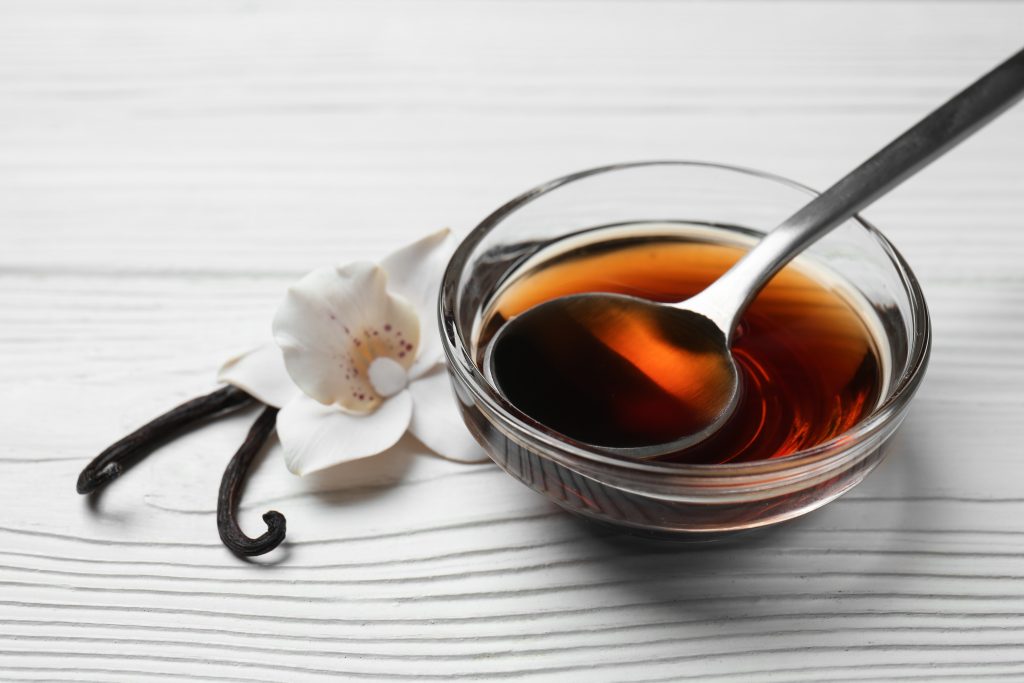
Even though I discussed this previously, it doesn’t hurt to remind you once again.
Yes, babies can have vanilla extract; however, if you want to use vanilla extract to improve the taste of something, then it needs to be cooked appropriately so it can evaporate because you do not want to risk anything.
We all know how flavor can be strong if you add too much vanilla to a specific food, which is why it’s completely understandable if you’re wondering if babies can have vanilla extract.
So to make things more precise, I will discuss the alcohol content in it below.
According to the Food and Drug Administration (FDA) if a certain product is defined as “vanilla extract”, it needs to have at least thirty-five percent of ethyl alcohol by volume.
Is alcohol really necessary?
Whether you like it or not, it is. Namely, it is required to make vanilla extract because it’s crucial to this whole extraction process.
Consequently, no vanilla extract’s alcohol-free.
Now, if you reside in the United States, then I regret to inform you that in this country, there are no established guidelines when it comes to this topic which can put a lot of pregnant women and babies at risk.
And that’s very unfortunate. That’s precisely why I told you before that yes, babies can have vanilla extract (both breastfed ones and the ones who use baby formula), but only if you do not overdo it.
So be sure to only put a couple of drops of it and of course, to use it in recipes that require cooking so that alcohol can evaporate. Adding more than a few drops is truly unnecessary.
Can You Use It For the Baby’s Gums or While Teething?
Teething is far from smooth sailing, and every seasoned mom will tell you it can be a true pain in the neck for both parents and their little angel.
Now, there are lots of parents out there who have heard before that vanilla extract is safe for babies when teething because it’s going to alleviate the pain.
Even though vanilla extract is known for being a good pain reliever (when it comes to teeth-related problems), it shouldn’t be put on the gums of your baby.
Why is that?
Well, that’s because, like I previously said, there aren’t established guidelines in terms of amount. Hence you can never tell if you’re adding too much or not.
Therefore, if you want your baby’s teeth-related issues to be resolved in a healthy yet effective way, then please be sure first to heat the vanilla extract before you give it to your little angel.
On the flip side, if you want to opt for some other methods, then you can always use an over-the-counter medication like ibuprofen or acetaminophen (intended for babies, of course).
Or, you can rub its gums by employing either a teething ring or a chilled spoon.
Can Babies Have Vanilla Extract that’s Put In the Food?
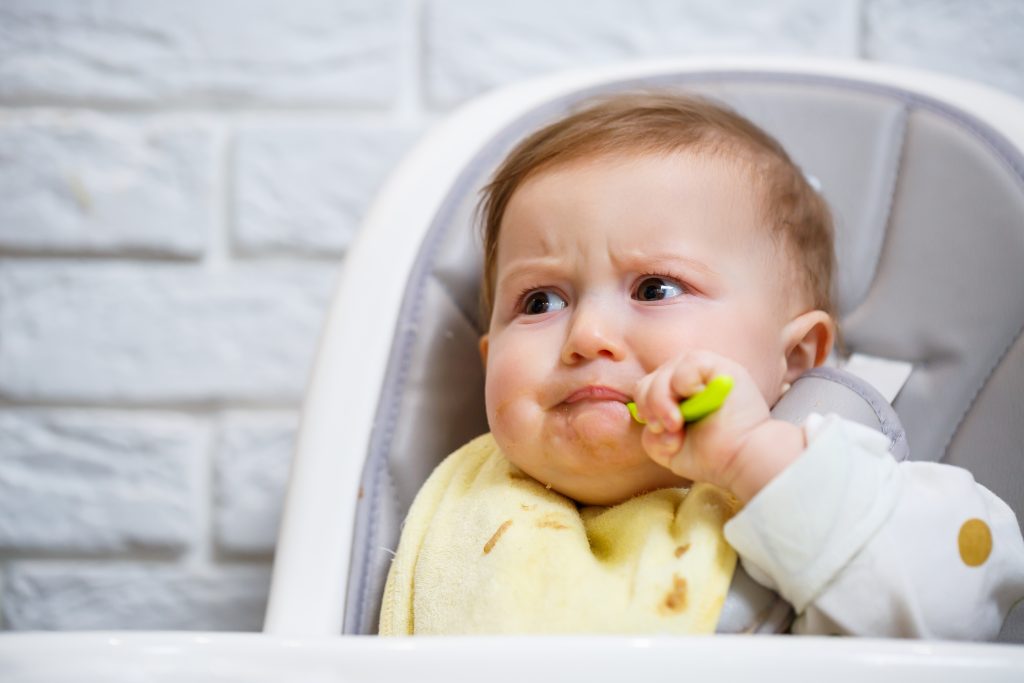
Yes, babies can have vanilla extract that’s added to food, as long as it’s thoroughly cooked. And of course, this mostly refers to baked goods. In these instances, adding vanilla extract is entirely okay.
These are the best possible options because only then can you be one hundred percent sure that the alcohol has evaporated during the heating or cooking process.
Don’t be afraid to add a few drops into this extract to the favorite food of your baby, like pancakes or donuts.
Of course, this refers to children who are already having finger foods, which is around 6 months to 9 months.
Factors to Take Into Account When Obtaining Vanilla Extract
Now that I concluded that babies could have vanilla extract, it’s time to cover this topic so you do not purchase something that’s potentially harmful to your little one.
Alcohol Is Inside
I know you probably think I am repeating myself like crazy, but it’s all because I want what’s best for you and your kiddo.
So let’s go through this again!
As I stated above, the pure vanilla extract contains ethanol because it aids in extracting the flavor from the vanilla beans.
Thereby, if you decide to buy pure vanilla extract, please be sure you only add small amounts of it because only then will you decrease the risk of alcohol poisoning.
Can Babies Have Vanilla Extract That’s Actually an Imitation?
I know that many mothers (especially the ones who are tight on the budget) would rather opt for this version because it’s cost-effective, but it doesn’t mean that it’s better as well!
When I told you that babies can have vanilla extract, I referred to the one that’s pure.
But what’s so bad about an imitation?
Well, the name suggests everything. Bear in mind that it does not contain any natural vanilla, which is the main reason why it’s called imitation and not original or pure vanilla extract.
This “spoiled” version is actually made from clove oil or oil from particular conifer trees, and then it’s combined with additives that give you that vanilla flavor.
Can You Add Vanilla to Breast Milk with High Lipase?
Every breast milk has lipase. However, some women tend to produce higher amounts of it, which results in altered flavor.
This is particularly the case when women express the milk and then put it in the refrigerator. And then, the lipase in the breast milk makes the fat break down faster, which causes the flavor to change.
So can you, in these instances, add vanilla to the breastmilk?
Even though there’s no doubt that vanilla extract can positively affect the flavor of breast milk, it would be great if you did some things beforehand and of course, consulted your physician.
So what are you supposed to do?
1. First, express some milk and then wait for a little to see if it smells fine
2. Put it in the fridge or freezer
3. Wait for at least one day
4. Take the milk from the refrigerator/freezer and then check once again to see if the smell has altered
If you notice that the breast milk smells a bit soapy, then it’s highly likely that it contains more lipase than normal.
In these instances, you can add one or two drops of organic vanilla to enhance the flavor.
Vanilla Extract & Pregnant Women
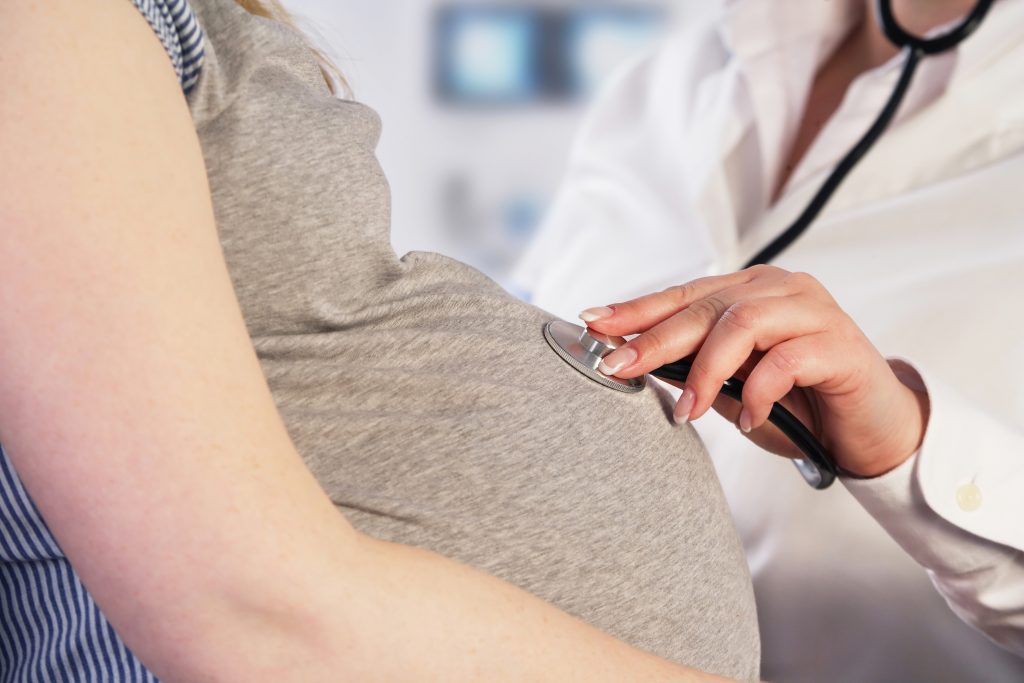
Just like new moms, pregnant ladies as well have several questions (for example, can they eat parmesan cheese while pregnant), and one of them is whether it’s safe to have vanilla extract during pregnancy.
Getting pregnant is one of the greatest joys in life, so I completely understand if you do not want to do something that’s going to jeopardize the health of your baby.
Now, if you’re already eating foods that have vanilla extract, then there’s no reason for you to be concerned.
However, that doesn’t mean that you should consume higher amounts of it. Instead, stick to food that contains vanilla flavors.
And of course, do not forget to consult your healthcare provider whenever you have some questions concerning your diet and health.
If you want to jazz things up in terms of flavor, then yes, you can add some vanilla extract to your food or drinks.
For example, your smoothie or yogurt is going to be tastier for sure if you “sprinkle” some vanilla extract.
Although no research suggests that vanilla extract is unsafe during pregnancy, it still doesn’t mean that you should be careless.
Because, at the end of the day, there isn’t enough research to confirm that it’s safe to consume as well.
That’s precisely the main reason why you should steer clear of foods and drinks that are loaded with vanilla extract. And even if you decide to add vanilla extract to the baby formula, please do not add too much.
It’s All About the Boundaries
Usually, most recipes contain small amounts of vanilla extract, which is a great thing. Therefore, you should stick with the amounts that were put in the recipe.
Do not think about adding more!
Consequently, if you’re planning on making some delicious cupcakes or muffins, then it will be perfectly fine if you add one teaspoon of it.
It’s also completely okay if you decide to have a drink (such as coconut milk) that can contain vanilla extract too, just as long as you are not exaggerating.
Something like this won’t definitely cause any major issues. It’s not like you would ever drink the entire bottle, right? (or at least I hope so!)
Oh, and let me tell you this too. Besides containing alcohol, the vanilla extract contains added sugar too, so it wouldn’t be smart to have it in huge amounts. Too much sugar is not good neither for you or your baby.
One Thing Before I Go!
I know that you are probably tired of the word vanilla extract. However, I would like to add one more thing before we “part ways.”
Do you know how I told you before that you shouldn’t use alcohol-free vanilla extract (so-called imitation vanilla) when you’re making some baby food?
Well, the same rule applies to pregnant ladies too!
In case you didn’t know, on the market, you can stumble upon Mexican vanilla extract high in coumarin, which can be very detrimental and toxic.
Fortunately, it’s banned in the United States. Although this product really smells and tastes like vanilla, it’s hazardous because it can result in blood thinning.
And that’s far from a good thing when you’re pregnant. Aside from that, it can interact with blood-thinning medicines.
At least, that’s what the FDA concluded. Therefore, you must be extra careful whenever you go on your shopping spree to buy a vanilla extract.
Keep in mind that various ethnic stores sell fake vanilla (even though it’s prohibited), so if you notice something like “Vainilla” or “Extracto de vanilla,” stay away from it!
Conclusion
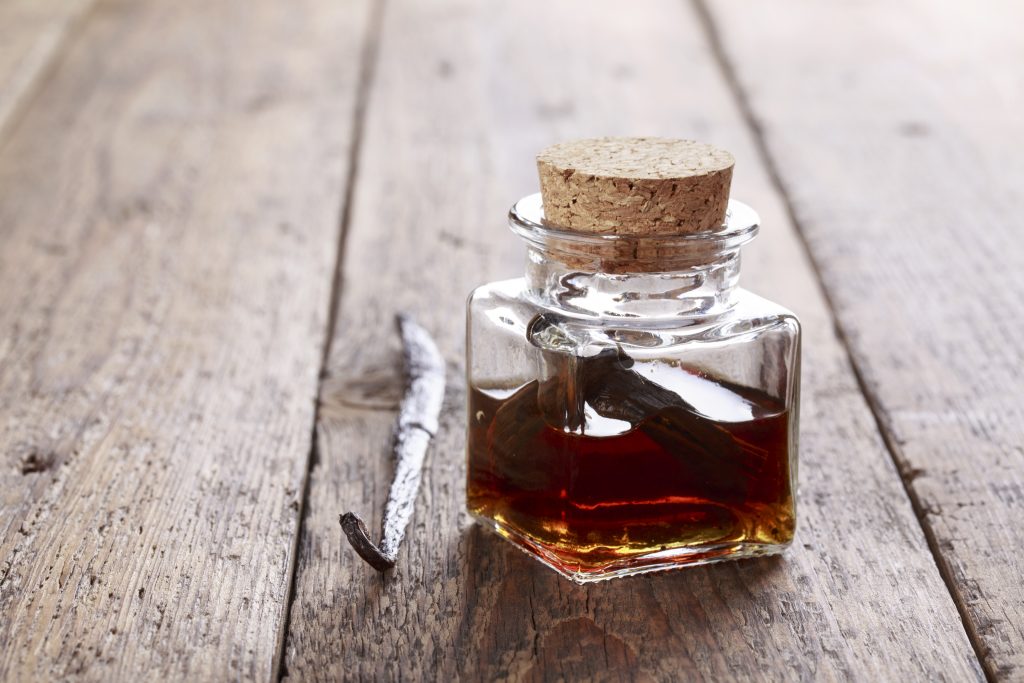
I feel like now you’re relieved when you realize that babies can have vanilla extract, knowing that you won’t “deprive” your baby of delicious pancakes, muffins, and cupcakes that contain it.
(plus, I know you want to enhance the flavor of the formula too)
Even though it would survive even without it, it’s always better when something is allowed.
But like I said numerous times, please be careful when purchasing vanilla extract because you do not want to acquire something that you will later regret.

Well, hello there!
My name is Jennifer. Besides being an orthodontist, I am a mother to 3 playful boys. In this motherhood journey, I can say I will never know everything. That’s why I always strive to read a lot, and that’s why I started writing about all the smithereens I came across so that you can have everything in one place! Enjoy and stay positive; you’ve got this!

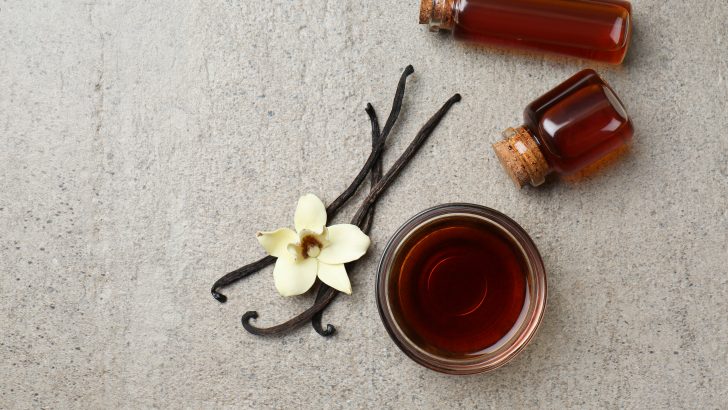
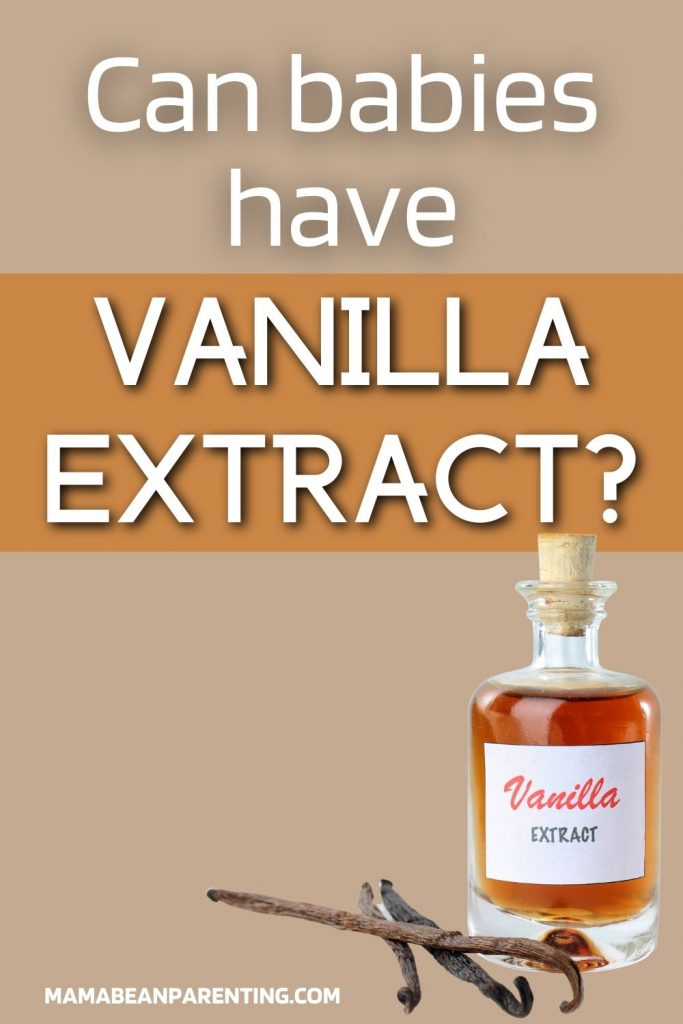
Can Kids Eat Rum Cake? • Mama Bean Parenting
Monday 17th of April 2023
[…] they’re babies, you keep wondering about simple things like whether babies can have vanilla extract or if sea moss is safe for […]